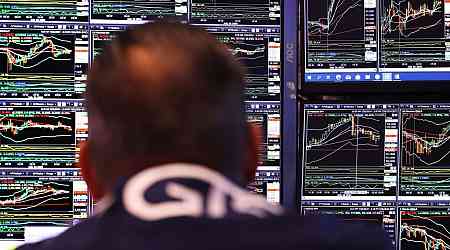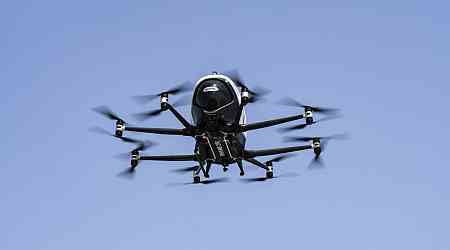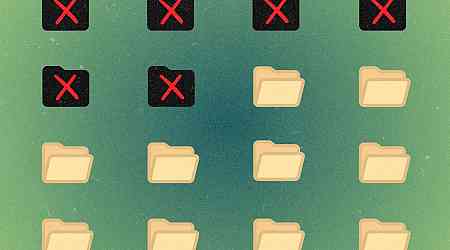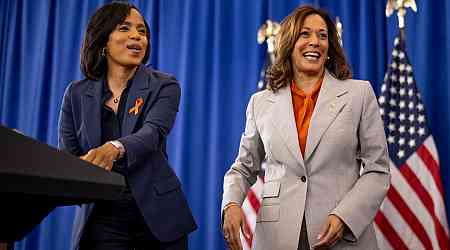
The U.S. economy grew at a robust 2.8% in the second quarter, far faster than economists’ predictions of just 2%. The miss is reminiscent of a long losing streak for doomsaying about the U.S. economy. 2023 stood in the shadow of the “inevitable recession,” a spectacular forecasting failure that persisted in the face of remarkable economic strength. In 2022, the economic narrative suggested that inflation would spiral into persistent 1970s-style inflation; and, in 2020, a “COVID depression,” a downturn worse than 2008 and perhaps as bad as the 1930s, was widely foreseen.
[time-brightcove not-tgx=”true”]The recent pile-up of forecast failures is reminiscent of 2008, when the global financial crisis crushed the reputation of economics along with banks’ balance sheets. Then, the most stinging criticism of the discipline came from unexpected quarters. On a campus visit to the London School of Economics, the Queen asked a simple question that captured the global mood: “why did nobody see the crisis coming?”
What’s wrong with economics
Publicly humbled, the economists retreated to their quarters to conduct a post-mortem. But the resulting letter to the Queen epitomizes much of what is wrong with economics—now as then. The academics were already improving their approaches, they wrote, and would perfect their models such that her Majesty would “never need to ask your question again.”
If only. The problem of economics is not that models have yet to be perfected but that practitioners still believe they can and should be. “Physics envy”—the desire of economists to emulate the natural sciences—has led to borrowing mathematical and statistical methods in the hopes of replicating their accuracy. It has made their work weaker, not stronger.
Economists can’t say they weren’t warned. Some of the discipline’s luminaries, on both sides of the ideological spectrum, criticized economists’ scientific pretenses many years ago. In 1938, John Maynard Keynes warned that economics was “not homogenous through time” the way we can assume the physical world to be. In 1949, Ludwig von Mises wrote that there were “no constant relations” in economics. And putting it most bluntly and aptly, Friedrich von Hayek in the 1970s stated that it would lead to “outright error” if economists continued to “imitate the brilliantly successful natural sciences.”
Consider recent “outright errors” in predicting inflation, the inevitability of recession, and impossibility of a “soft landing.” The loudest voices propagating this narrative, such as Larry Summers, did so in the tradition of the Phillips curve, a model of inflation with a checkered history. It posits a trade-off between lower inflation and higher unemployment—only by putting workers out of work would consumption and therefore price growth slow. The post-pandemic version of this idea was that unemployment would have to rise to a recessionary 6% to bring inflation down. But inflation fell from 9.1% to just above 3% in a year, and unemployment stayed near record lows.
Milton Friedman’s mantra that “inflation is always and everywhere a monetary phenomenon” is another case in point. Hammered into generations of students, monetarism—the school of thought that linked growth in money supply and inflation—has enduring appeal even as empirical failures have accumulated. In the aftermath of 2008, when central banks aggressively grew the money supply, many economists leaned on monetarism to predict imminent hyperinflation. Yet what followed was a decade-long struggle to reach a modest 2% inflation target.
In reality, macroeconomic prediction may be closer to playing a series of one-round games than cracking hard but stable truths the way physicists do. How could a recession be predicted with any degree of reliability if each has unique causes and contexts? The differences between the last four recessions—2020 (COVID-19 pandemic), 2008 (housing crash and banking crisis), 2001 (investment bust and stock-market crash) and 1990 (an oil shock)—speak to this point. And even if they did have common drivers, the U.S. has seen only 12 recessions since World War II. This means that when trying to model and forecast recessions the data available is very modest. It may irk economists, but that sample size is more suited to the historian than the physicist.
Nor will AI and ever-better computing power solve economic forecasting. Every new technology is a siren song for modelers—and each its own false dawn. When satellite imagery became commercially available, shots of Walmart parking lots were touted as real-time recession indicators but have not moved us closer to calling a recession, as we’ve seen. Web-scraping of prices was supposed to flag inflation in real time but failed to deliver any insight about the path of the inflation rollercoaster. AI will be powerful in many ways, but it will not “solve” economists’ forecasting problem.
Read More: To Fight Inequality, America Needs to Rethink Its Economic Model
The missing oath of humility
The upshot has hardly been just a series of bad forecasts. Unlike natural scientists, economists have an outsized voice in society—commanding the ear of policymakers, executives, investors, and the public. Passing economics off as a natural science is more than academic frivolity—it is a societal problem.
This too came with a warning—some 50 years ago. In 1974, Austrian-British economist Friedrich August von Hayek won the Nobel prize in economics, then a recent addition to the original prizes in peace, literature, physics, chemistry, and medicine. In a dinner speech to those honoring him, Hayek delivered a stinging message: The Nobel prize in economics, he said, should never have been introduced because it conferred undue authority on its recipients. This was not a worry in other disciplines, but economists’ societal influence meant the honor could do real harm.
So worried was Hayek about the gap between economists’ aspirations and abilities that he urged the Nobel committee to require an “oath of humility” from economics laureates, a sort of Hippocratic oath, “never to exceed in public pronouncements the limits of their competence.” Hayek feared the rise of the omniscient economic oracle: a laurate at once whispering into leaders’ ears and shouting at the public even as their predictions remain largely guesswork.
Instead of adopting an oath of humility, economics has since churned out generations of model-wielding academics and policy wonks. And, as forewarned by Hayek, their figureheads often command outsized societal influence while ignoring the brittle nature of their craft. They routinely stray outside the bounds of their original field of competence—with bold confidence in their prognostications.
In 1990, for instance, a decade and a half after Hayek planted the idea of the humility oath, economist Paul Krugman predicted in The Age of Diminished Expectations that the U.S. would fall behind Japan and Europe in the economic pecking order, a defeatist narrative of relative decline that strayed outside his main academic work. As a columnist, Krugman has long written confidently on nearly any topic, a societal microphone that his 2008 Nobel prize turned into a megaphone. There are many brilliant insights in Krugman’s writing. Yet more than three decades after having predicted the U.S.’ relative decline in a major book, Japan and Europe remain far behind the U.S.
Read More: Why Paul Krugman Is Wrong About the 1990s
The audience is at fault, too
Hayek’s warning about the omniscient oracle holds another insight: The discipline’s dysfunction is not economists’ fault alone. In their embrace of math and models, economists misuse the discipline, but it’s the audience that routinely abuses their work.
Again, this has a long tradition. During World War II, Kenneth Arrow, another Nobel laureate in economics, was told to use his prodigious mathematical skills to forecast the weather a month out. He quickly uncovered that modeled forecasts were no better than those chosen at random and asked his commanding officer to send his analysis up the chain of command. The reply came back down: “The Commanding General is well aware that the forecasts are no good. However, he needs them for planning purposes.”
Today, repeated empirical, practical, and theoretical flops have not deterred demand for precision forecasts, for both the short and longer run. Businesses are no shier to request and use 3-year inflation forecasts for their strategic plans, never mind economists’ all too public struggles to get even the next month right. Policymakers routinely request economic forecasts to underpin their legislative proposals—even when told the predictive power is little better than junk. The audience’s hunger for precision is enduring.
And it’s not just professional users of economists’ output who gloss over the flaws for convenience. The media routinely does the same. Consider again the recent false alarm of an “inevitable recession.” Inevitability was certainly dialed up by economists. But even the gloomiest forecasters gave a 10, 20, or even 30% chance of a soft landing. An audience in search of an answer will readily gloss over such detail, particularly if the main argument is a simple message of collapse.
Indeed, public discourse is complicit in the doomsaying the “dismal science” is so good at. Often, economists are incentivized to make crass, bold, and apocalyptic predictions in a game to attract attention, airtime, and relevance. Though systemic risks remain in the economy, volatile economic data are routinely spun into stories of collapse and despair.
When inflation was 9.1% the choice was presented as either a runaway wage-price spiral, a deep recession with high unemployment, or even both: stagflation. But now we’ve had the longest stretch of unemployment below 4% in over 50 years and inflation is back within eyesight of the policy target. For every true crisis, there are many false alarms. Even so, there is little appetite for holding doomsayers accountable.
Read More: Is Economics Ideological by Nature?
Don’t fight uncertainty. Embrace it
The practitioners and users of economics must—and can—do better. But how?
Imposing a “humility oath” was workable neither half a century ago nor is it today—change must come from within and address the root cause of dysfunction.
Economists (and their audiences) can take inspiration from unexpected quarters. In 1760, before macroeconomics was born, Voltaire, the French philosopher, made an observation about uncertainty that epitomizes the struggles of modern economics: “Doubt is not an agreeable condition, but certainty is an absurd one.”
Economists’ relationship with uncertainty must be inverted. Welcoming uncertainty, rather than masking it with absurd scientific veneer, could bring three benefits.
First, accepting their vulnerabilities will nudge economists to seek inspiration—and help—from other disciplines. Those who eclectically string together economics, history, politics, finance, and other fields tend to produce more resilient readings of the future. Economists need not even feel ashamed of owning up to their limitations. Disciplines that stand on much firmer scientific ground are known to fail, too. In 2020, epidemiologists did no better at predicting COVID-19 deaths than economics did at predicting recovery.
Second, by embracing uncertainty, economists can let go of the faux precision of point forecasts and communicate more realistically about the distribution of their views, as well as the flaws and “error terms” that remain in any model. When the pretense of scientific precision fades, so does the need to project over-confidently. Though the doomsaying slant in public discourse will prevail, the audience can recognize the need for more-calibrated predictions and discount the brashest ones.
Third, though the embrace of uncertainty won’t deter economists from straying outside their specialized expertise, they can do so more effectively. Pontification can give way to exploration. This would also help the audience see there are no economic oracles—and that any economist comporting themselves as such should be avoided.
Does the embrace of uncertainty mean that forecasting and mathematical economics should be discarded? No. Both have a role when used thoughtfully. Forecasts should be understood as an uncertain, ever-changing numerical snapshot of an economic base case. And even the pretense of an “economic equilibrium” can be a useful analytical idea if we also acknowledge that the economy continuously moves from one disequilibrium to the next. But their usefulness should not be overstated, nor translated as inevitable in public discourse.
Read More: If the Economy Is Doing So Well, Why Does It Feel Like a Disaster?
Judgment not prediction
Today, there is already a wider range of approaches to economics and the economic mainstream may or may not drift towards a humbler future. Those too impatient for (uncertain) betterment can strengthen their own defenses.
We can and should reflexively question forecasts, taking them as a snapshot of somebody’s opinion, not a representation of the future. We can—and should—lean against doomsaying and keep track of the false alarms that economists sound. We can and should ask to hear the causes and drivers, explanations of supposedly dark outcomes rather their prediction. And we can be skeptical of the loudest voices and why they hold the microphone.
If we cast aside the pretense of certainty and accept uncertainty, we’ll find ourselves one step ahead of public discourse. That still won’t give us failsafe predictions of the future. But rather than outsource our judgment, we can cultivate it.

























